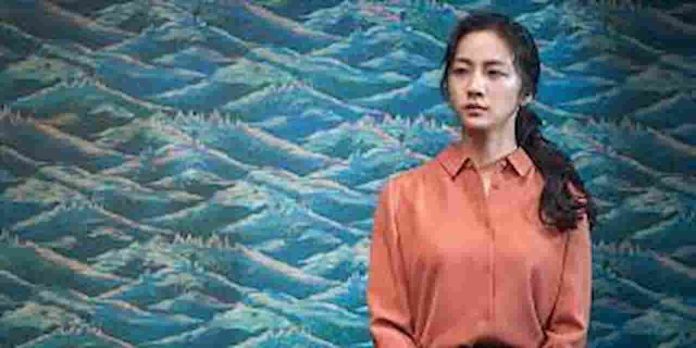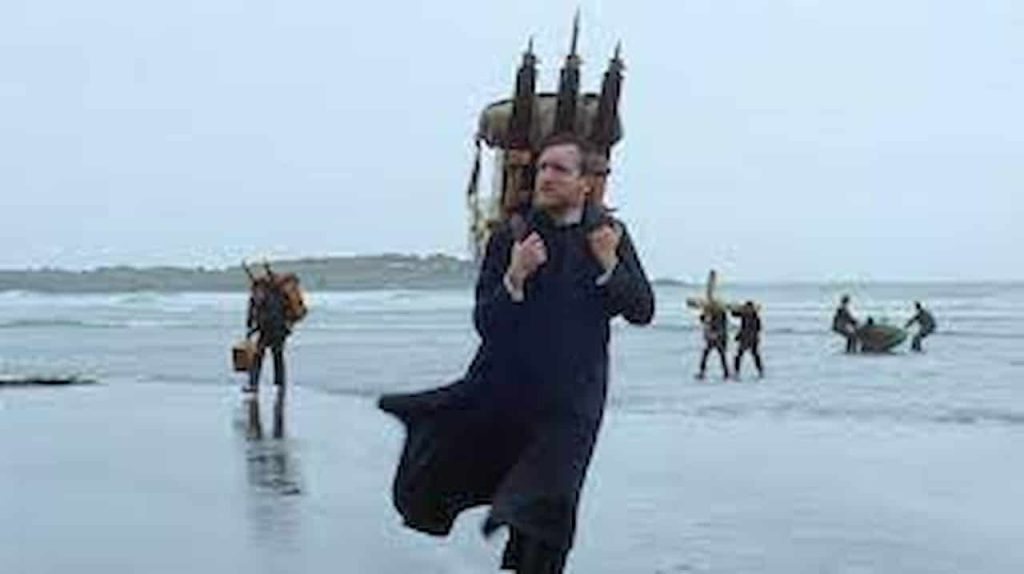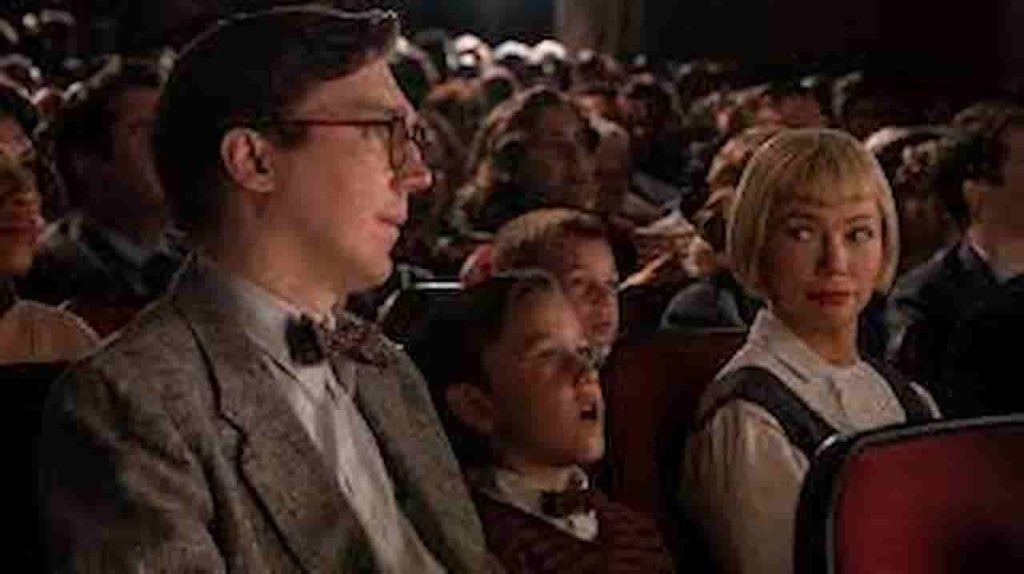Right Now, You Can Watch The 15 Best Movies From Tiff 2022:
There were many things that made TIFF 2022 unique. Because of COVID-19, the festival had to cancel the films that were going to be shown in person in 2020 and 2021. Everyone knew why the festival had to be online those two years, but most people were looking forward to seeing the magic of TIFF again in theaters.
I was thrilled when TIFF 2022 said it would hold shows for the public and the press. It’s one of the best things in life to watch movies and find new ones with other movie fans. What was more exciting was that TIFF had a great list of movies this year. Not only did people with feature pictures want to be on the show, but also people who didn’t have any.
Taylor Swift showed up for a talk with her Oscar-nominated short film “All Too Well.” Damien Chazelle sat down for a talk about his whole career, which included the world premiere of the trailer for “Babylon,” his unfinished epic about Hollywood in the 1920s that will come out in December.
I’m happy to say that TIFF 2022 was a success all around. I spent nine days there and saw thirty movies. I could not have asked for anything more, whether it was how easy it was to get into a press showing or how good the movies were.
All The Beauty And The Bloodshed:
By switching between biography and showing how the author of “Ballad of Sexual Dependency” fought the Sackler family and made art institutions realize that people who claim to care about others can also be Big Pharma pushers, documentarian Laura Poitras turns a portrait of artist photographer Nan Goldin into a piece of protest art.
You still learn a lot about Goldin’s life and times, but like Poitras’s other films about leakers and troublemakers, the lines between the personal, the political, as well as the moral are blurred, which makes both the background and the back list better.
Some biodocs are like winning runs or funeral rites. The regular sound of camera clicks adds to the sense of urgency in this biodoc.
De Humani Corporis Fabrica:
Verena Paravel as well as Lucien Castaing Taylor’s bold new documentary goes deep into several Parisian hospitals, starting with the bloodstreams of the halls and moving on to the personalities of the doctors and nurses who work there. It then goes even deeper into the bodies that are being operated on.
For people who are easily scared, De Humani Corporis Fabrica might look such as a horror movie because it shows the brain, intestines, and everything in between in a way that is usually only seen in medical school.
But I found this amazing journey to be quietly moving, both because it finds strange beauty in the way our bodies work and because it shines a light on the people who work to fix those systems for a job. I had never seen the world like that before.
Aftersun:
This softly heartbreaking first movie from Scottish writer-director Charlotte Wells is based on a true story. It’s about a father and his teenage daughter on vacation on the Turkish coast during the summer.
Soon, their sunny Mediterranean paradise turns out to be a hazy look into a sad past, with home videos and creepy flash-forwards stopping the story every so often.
But if “Aftersun” was a lament for how imperfect memories are, then the film itself is almost perfect: it makes you feel a lot of things, even though years of difficult family history are left out of the movie.
The Banshees Of Inershin:
When we talk about going back, Martin McDonagh takes us back to his Irish roots with this darkly funny story about a middle-aged fiddler who breaks up with his best friend and somewhat dim drinking companion.
He wants to spend his last years writing great music, but his old friend won’t let him say no. If you’ve seen or read anything by McDonagh, you know that there is hot, fast-paced slang and violence. Both of those things are present as well as accounted for here.
Though the back and forth is funny and ends with bloody self-harm, it has a human side that reminds me of the playwright’s early work. It helps that his In Bruges duo brings his dialogue to life once more. Over the next few months, you’ll hear a lot regarding Farrell’s work.
Godland:
In the 1800s, Iceland was a Danish colony, and a priest from Denmark sets out on a journey across the harsh landscape of Iceland to help start a new church.
Along the way, this skinny, awkward traveler shows his flaws as a person and as a man of God. He holds a deep grudge against the expedition’s guide, who is the exact opposite of him in terms of toughness, lack of intellectual pretension, as well as lurching size.
After the mysterious and interesting grief drama A White, White Day, Hlynur Pálmason writes a forest journey that is just as interested in the characters’ fears, wants, and small grudges as it is in the beautiful scenery. I loved every minute I spent in Godland’s sharply described old world, where Pálmason finds bitter and sweet notes that clash.
The best thing I can say about the movie is that it made me think of Kelly Reichardt’s grim opera Meek’s Cutoff, which was the initial great film I ever saw within Toronto, which was more than ten years ago.
The Eternal Daughter:
Tilda Swinton stays at a run-down Welsh hotel that might be cursed. She is both a mother as well as a daughter.
Do you really need to know anything else? Okay, fine: The Eternal Daughter was the latest movie by the great English director Joanna Hogg. It’s a lot like her other great movies, The Souvenir as well as The Souvenir Part II.
That means it’s based on the director’s own life, which connects it to some of the other movies on this list. However, Hogg’s clever use of genre puts it in a scary as well as finally, deeply moving class through itself.
The Fabelmans:
It was worth the wait when Steven Spielberg finally made Roma. In his memoirs about his childhood in the 1950s and 1960s, director as well as screenwriter Tony Kushner talks about how movies helped a sensitive kid get through moves, family problems, and anti-Semitic bullies.
Spielberg has talked about what sounds like a rough childhood over the years. But to see him re-enact the pain and joy of his childhood and to feel like he’s finally at a place where he is able to do this through understanding and forgiveness was to see American cinema’s greatest escape artist looking inward.
You can think of it as American Graffiti mixed with a Eugene O’Neill play and a session of raw scream treatment. In addition, it has a great casting move and a hilarious ending visual joke.
Decision To Leave:
The Korean director of Oldboy and The Handmaiden, Park Chan-wook, may have made the least sexually explicit movie he has ever made. His latest is a detective story that slowly turns into a tale of seduction and repressed desire.
Park, on the other hand, approaches the material with an honestly amazing range of visual invention. The beauty of his designs and the smooth flow of his cuts elevate even the most basic talks.
It’s clear why he won the award for best director at Cannes last summer. The choice to leave is a great example of how a great director can make any scene interesting. The best thing about the movie, though, is Tang Wei, who plays the femme fatale in a way that is both emotionally complex and may be her best part since Lust, Caution.
Glass Onion: A Knives Out Mystery:
A good sequel is lively and fun. The way it looks makes it look like everyone was having fun. The cameos are fun. If there’s one star who stands out, it’s Kate Hudson, who takes most of the funny lines as well as nails them with great comedic skills.
The fact that the sequel stays fresh and interesting while following the same structure as the first movie is a credit to writer-director Rian Johnson. This is one of the best snack flicks of the year so far.
No Bears:
Being a political prisoner in Iran Jafar Panahi is currently serving a six-year term for “producing anti-government propaganda” gives his latest meta-drama a sense of urgency as well as sorry value.
Still, it is a masterpiece no matter what, because Panahi uses his own life to make something that is both deeply moving and uplifting. Since the director can’t make movies within his own country, he gets around the ban by supervising a production within Turkey from home using a laptop.
But the people in the cute town where he’s staying start to worry that their famous guest has shot something in his spare time that hurts some locals, and they want to see the pictures.
The way things go resembles his real-life problems in tiny, with disaster and comedy just around the corner.
R.M.N.:
Cristian Mungiu, who is known for his movie 4 Months, 3 Weeks, as well as 2 Days, is my favorite Romanian New Wave director because he is so good at making stories with a lot of drama.
His most recent book is a sad story about rising racism in a small town in Transylvania that is known for having a diverse population of Europeans but not so open to people of other races.
The movie is powerful not only because the conflict feels so real, but also because Mungiu mysteriously connects the town’s white supremacist problems with his main character’s slow-moving adventures.
The character is a swollen lump of unspoken anger whose part in the situation stays firmly unclear. Sometimes these two stories don’t connect, and that may be what makes the movie powerful.
Broker:
Hirokazu Kore-eda, a Japanese master, directs this South Korean production. It tries to make you understand, if not connect with, people on a quest that you can’t cheer for.
They want to sell a baby and are people smugglers. Kore-eda’s stories are so well-told, with surprising humor and heart, and the characters are explored with such realism and depth through strong acting that you can’t help but relate to them and feel like they are real people.
There is one scene in “Broker” that moved me more than any other this year. It is just as quiet and touching as the most famous scene from “Never Rarely Sometimes Always.”
Return To Seoul:
The ’90s In the first part of writer-director Davy Chou’s drama about Freddie, a young Korean woman who was adopted and grew up in France, there are strong Wong Kar-Wai vibes. As an adult, Freddie goes back to her hometown to find her birth parents.
The job is going to be harder than she thought, so she’s hanging out, hooking up with people, and drinking her way via Seoul to pass the time. When she finally meets her dad, he’s also in a bad spot, and her mom is still missing.
Years go and the more the film jumps ahead, the longer you feel like she needs to wrap things up. And Park gives a great performance. You can also tell that Chou, who was born within France to Cambodian parents, is using his own cross-cultural experiences for the sake of cinematic release.
Golden Slumbers, his early love letter to Cambodian film, showed that he was a talented young man to keep an eye on. I’m now a ride-or-die fan because of this new movie.
Viking:
Eight years after creating a small splash at TIFF with his achingly good coming-of-age comedy Tu Dors Nicole, Stéphane Lafleur is back with a funny, dark gem about a strange simulation.
As a ship with people on board heads for Mars, five people upon Earth, each chosen because they are emotionally and psychologically similar to one of the scientists on board, try to predict and solve the real problems that are happening or are likely to happen between their space peers.
Lafleur sets up the situation to get absurdist laughs, but he is also very interested in how we all handle and try to predict our feelings about everything.
One could think of a more mind-bending way to handle the idea, but I really liked this simple approach. It could also be Lafleur’s way of commenting on how silly movies are in general.
Empire Of Light:
This year’s other “most personal film by an Oscar-winning director” could very well be Sam Mendes’ best work. The story takes place in the 1980s and is full of strong emotions like desire, love, race relations within the face of Britain’s National Front, the power of movies, and the constant threat of mental illness.
Olivia Colman gives a great performance, even by her high standards. There are painfully real highs and lows. Co-leader Michael Ward should get a lot of attention for awards.
It’s not directly personal, but it’s full of details and textures that make you feel like you’re there. You are almost able to smell the popcorn within the theater hallway and the winter in this beach town. It seems such as a memory play regarding made-up events that grew from real ones.



















